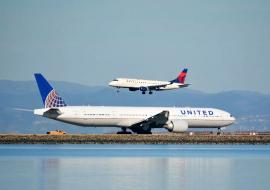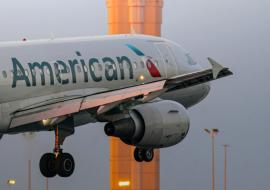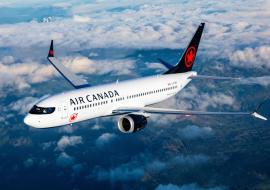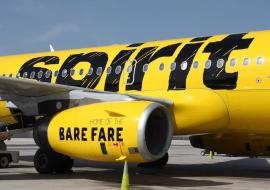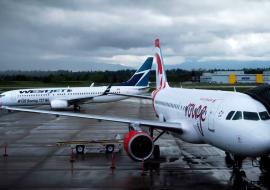Global Low-Cost Carrier Market Set to Soar Amidst Increasing Air Passenger Traffic

The global low-cost carrier (LCC) market is poised for remarkable growth in the coming years, according to the latest report by Technavio. With an estimated increase of USD 299.84 billion from 2024 to 2028, the market is projected to grow at a CAGR of approximately 15.34%. This surge is attributed to the burgeoning air passenger traffic worldwide, driving the demand for affordable and accessible air travel options.
In the realm of low-cost carriers, the trend is shifting towards customization and personalization, particularly in luxury goods like leather handbags. Developed and emerging economies alike are witnessing a surge in demand for personalized luxury items, including leather handbags tailored to individual preferences, ranging from straps to embroidery. This consumer behavior is paralleled by the focus of the low-cost carrier industry on factors such as ticket prices, aircraft types, fleet modernization, crew training, and operational efficiency to streamline costs and simplify operations.
The low-cost carrier market's growth trajectory is underscored by the increasing number of air passengers, which reached 5 billion in 2022, marking a 4% increase from the previous year. This trend is expected to persist, with passenger numbers projected to double in the next 15 years, particularly in the Asia-Pacific (APAC) region. Major aircraft Original Equipment Manufacturers (OEMs) are ramping up production to meet this demand, while LCCs are modernizing their fleets to stay competitive. Efficiency and reduced downtime are paramount for revenue generation, emphasizing the critical role of maintenance providers in ensuring fleet readiness.
The APAC region stands out as a significant growth driver for the low-cost carrier market, fueled by increased air passenger travel and the expanding middle-class demographic. This growth spurt translates into enhanced revenue generation for carriers, with efficient ground operations playing a pivotal role. Deregulation has empowered LCCs to offer reduced fares and a gamut of services, including inflight amenities and options tailored for business travelers. Intense competition prevails among LCCs, airlines, and consumers, driving profit margins and fostering innovation to meet evolving passenger demands.
Despite the promising growth prospects, low-cost carriers face challenges such as fluctuating raw material prices for aircraft and escalating labor costs in manufacturing countries. Regulatory compliance and environmental concerns also pose significant hurdles. Nevertheless, LCCs are leveraging efficiency measures, discounts, and ancillary revenue streams like inflight services to offset these challenges and maintain their competitive edge.
The global low-cost carrier market is poised for exponential growth, buoyed by the surge in air passenger traffic and evolving consumer preferences. As LCCs navigate through challenges and capitalize on opportunities, the industry is set to witness dynamic transformations, offering travelers unparalleled accessibility and affordability in air travel.








